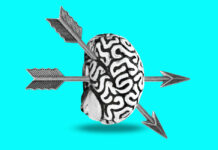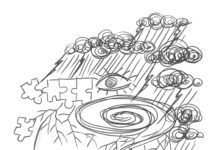A new linguistic study spanning over three decades of Czech journalism reveals that ordinary emotional states are increasingly described in ways that resemble psychiatric diagnoses.
The study, published in New Ideas in Psychology, analyzed over four billion words from Czech newspapers and magazines and found that everyday adjectives are acquiring clinical connotations at a statistically significant rate. Meanwhile, the use of formal diagnostic terms such as “ADHD” and “anorexia” has risen sharply. Interestingly, these terms have not been adopted in a more casual way and they continue to carry a clinical connotation, which surprised the researchers.
“These findings support the notion of an increasing presence of the ideological aspects of psychiatrization in the Czech press between 1990s and 2020s. It is very likely that such increase facilitates the tendency to interpret various life experiences through the lens of psychiatry, with potentially harmful effects,” writes lead author Vojtech Pisl, a psychiatrist affiliated with Charles University and the Institute for Postgraduate Medical Education in Prague.
“For an individual, such psychiatrization could lead to stigma, self-stigma, additional mental health problems and unnecessary medication prescriptions. Culturally, psychiatrization could lead to a diversion from the inclusive society due to a tendency to adjust culture to what is seen as normal and change what is seen as pathological. To psychiatry, such psychiatrization may mean a pool of additional patients asking for treatment of matters that would have not otherwise been interpreted as a psychiatric problem or as a problem at all.”
As researchers continue to examine how language mediates our understanding of human distress, this study provides empirical support for the concern that the boundaries between medical disorders and normal variations in mood or personality may be eroding. The findings point to a growing cultural tendency to interpret common emotional experiences through the lens of pathology, potentially shaping how people understand themselves, seek help, and relate to one another.















